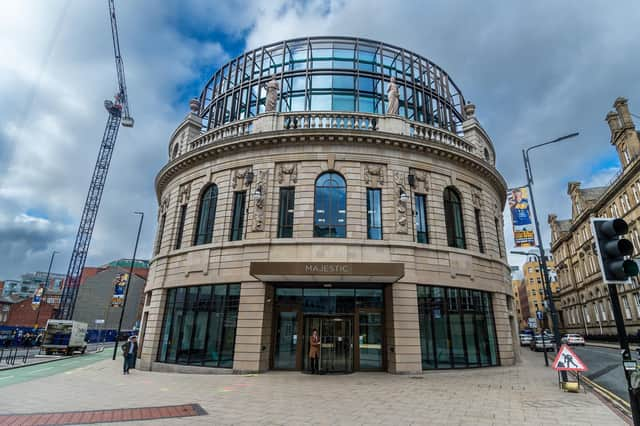Why we must resist Government's plan to sell off Channel 4 - Tracy Brabin


And this is apt because celebrating difference, bringing communities together and allowing people of all backgrounds to have a voice is one thing that Channel 4 has always done very well.
Together with Sir Roger Marsh, chair of the Leeds City Region Enterprise Partnership and chair of the NP11, I have written to the Government to express our utter dismay, disappointment and confusion over the decision. Our argument has been backed by some of the leading creative voices across the UK, political and business leaders.
Advertisement
Hide AdAdvertisement
Hide AdAnd now we’re seeing the Government’s own MPs and former senior Conservative politicians coming out in support of keeping Channel 4 in public ownership. There’s no other broadcaster around the world like Channel 4.
Let’s not forget that it was established 40 years ago by Margaret Thatcher to be a disrupter – an alternative to the BBC and ITV that invested in independent production.
It has brought programmes into our living rooms which have highlighted heartbreaking social issues such as It’s a Sin, championed coverage of the Paralympic Games and entertained us with original British comedy like Derry Girls. And it has done this without ever taking a penny from the taxpayer. So, it’s hard to understand why the Government has decided to sell Channel 4.
The privatisation of Channel 4 is a solution, where there’s no problem. Recent polling by 38 Degrees and JL Partners suggested just 15 per cent of the public were in favour.
Advertisement
Hide AdAdvertisement
Hide AdAnd the economic argument for it just doesn’t stand up. In her decision to sell Channel 4, the Secretary of State for Digital, Culture, Media and Sport, Nadine Dorries, stated that “a change of ownership will give Channel 4 the tools and freedom to flourish and thrive”, protecting its future model.
But Channel 4 is already flourishing and thriving. It has a highly robust financial position for a not-for-profit organisation, and last reported an annual surplus of £74m. And that surplus, rather than going into the pockets of shareholders, is invested back into programming.
Because of this, it has become an engine for economic growth, creating an ecosystem of new businesses, creating jobs, boosting skills and stimulating growth for us all. Channel 4 has a unique and innovative Nations and Regions strategy, with up to 50 per cent of commissioning outside of London and the South-East and hubs in cities across the length and breadth of the UK.
In September 2021, an independent analysis by Ernst & Young LPP stated that the creative sector could be £2bn worse off if the broadcaster was privatised, with 2,400 jobs in the creative industries under threat and at least 60 production companies at risk of closure – many of those based in our region.
Advertisement
Hide AdAdvertisement
Hide AdThe opening of the headquarters in the Majestic in Leeds created 200 jobs and brought a wealth of investment into our incredible creative sector. But it also ignited a spark that went beyond the West Yorkshire borders.
With the BBC’s Media City just across the hills in Salford, the new headquarters signalled the beginning of a real Northern powerhouse in the cultural industries. Across the North, there was an excitement, with the next generation at the very forefront of our minds – a publicly owned Channel 4 bringing skills and training opportunities, apprenticeships and a genuine offer to harbour independent talent.
We saw some of the UK’s largest independent producers setting up in the region or expanding their presence, alongside new production and studio facilities, plus significant financial support from the public sector.
And this experience has been replicated in Bristol and Glasgow. Is this not the Government’s much-trumpeted but rarely seen levelling up strategy in action?
Advertisement
Hide AdAdvertisement
Hide AdIt was one of the first broadcasters to move into streaming, with its All4 platform launching back in 2006 – long before Netflix. It has an enviable youth reach, with an 16-34 audience profile twice that of BBC1 and BBC2 and four in five 16 to 34-year-olds signed up to All4.
It is a matter of public record that the big streaming services see public sector broadcasting, and Channel 4 in particular, not as a challenger but as a necessary part of the whole ecosystem and a seedbed for talent.
Channel 4 is a service made for us, but at no cost to us. It’s the jewel in our crown and something that we are rightly, very proud of. It is a company that is owned by each and every one of us in our nation. In any other business this would seen as a hostile takeover. We will resist.
Tracy Brabin is the Labour and Co-Operative Mayor of West Yorkshire. She was formerly an actress, appearing in shows such as Emmerdale.
